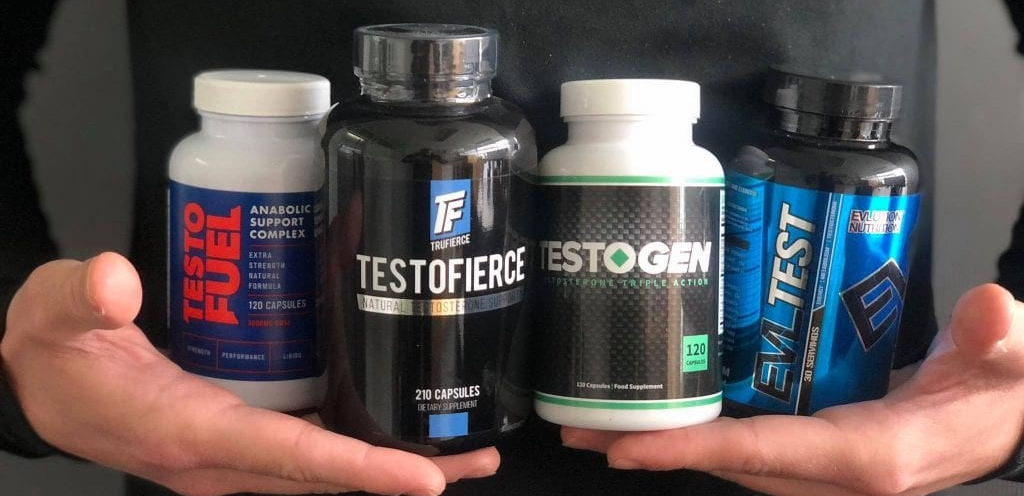You are reading Chapter 8 of our free TRT eBook.
The market is flooded with various supplements and products claiming to naturally boost testosterone levels. In this chapter, we will explore some of the most popular natural testosterone boosters and examine the scientific evidence behind their claims. It is important to approach these products with a critical mindset and consult a healthcare professional before starting any new supplement regimen.
Popular Natural Testosterone Boosters
The following are some of the most widely marketed natural testosterone boosters. These can be found in varying degrees as ingredients in other, branded testosterone supplements.
a) D-Aspartic Acid: D-Aspartic acid is a naturally occurring amino acid that has been claimed to increase testosterone levels by increasing the release of luteinizing hormone (LH), which in turn stimulates testosterone production.
b) Fenugreek: Fenugreek is an herb commonly used in traditional medicine for various health benefits. Some claim that it can boost testosterone levels by inhibiting the conversion of testosterone to estrogen.
c) Tribulus Terrestris: Tribulus terrestris is a plant extract that has been used in traditional medicine for its purported aphrodisiac properties. Some believe it can increase testosterone levels by stimulating the production of LH.
d) Ashwagandha: Ashwagandha is an adaptogenic herb traditionally used in Ayurvedic medicine. It has been suggested to increase testosterone levels by reducing stress and improving overall health.
e) Zinc and Magnesium: These minerals are essential for testosterone production, and some claim that supplementing with them can boost testosterone levels in individuals with deficiencies.
f) Horny Goat Weed: Epimedium, also known as horny goat weed, is a genus of flowering plants in the family Berberidaceae. It contains chemicals that may help increase blood flow and improve sexual function. It also contains phytoestrogens, which can mimic the hormone estrogen.
g) Dehydroepiandrosterone (DHEA): is naturally produces in the adrenal gland, and plays a role in the production of other hormones, including testosterone and estrogen. Similar to testosterone, natural DHEA levels peak in early adulthood and fall as you age.
Honorable mentions: Longjack root (eurycoma longifolia), Hawthorn berry extract (crataegus leavigata), Cordyceps mushrooms, and American panax ginseng (panax quinquefolius).
Prohormones: Out of the choices above, DHEA (dehydroepiandrosterone) most closely resembles the effects you may get from testosterone replacement therapy because it is a tesosterone precursor, or “prohormone”. Other prohormones include Andro (androstenedione), and androstenediol. Because they are precursors to testosterone, use of these testosterone supplements can also cause many of the same side effects as testosterone, as discussed elsewhere here on testosteronereplacement.org.
The Science Behind Natural Testosterone Boosters
While the aforementioned natural testosterone boosters are popular, the scientific evidence supporting their claims is often limited, inconclusive, or contradictory. Some studies have shown modest increases in testosterone levels following supplementation, while others have found no significant effects.
In many cases, the positive effects of these supplements may be due to their ability to correct underlying nutritional deficiencies, reduce stress, or improve overall health, rather than directly increasing testosterone levels. It is also essential to consider that these supplements may not be as effective as testosterone replacement therapy in addressing severe cases of low testosterone.
Safety and Potential Side Effects
As with any supplement, it is crucial to consider the potential side effects and safety concerns associated with natural testosterone boosters. Some of these products may cause gastrointestinal issues, allergic reactions, or interactions with medications. Furthermore, the quality and purity of supplements can vary significantly, posing additional risks.
Before starting any new supplement regimen, consult with a healthcare professional to discuss potential risks and determine whether the supplement is appropriate for your individual needs.
The Bottom Line
While some natural testosterone boosters may provide modest benefits in certain circumstances, the scientific evidence supporting their claims is often limited or inconclusive. For individuals with clinically low testosterone levels, testosterone replacement therapy remains the most effective and evidence-based treatment option. However, for those looking to optimize their testosterone levels naturally, focusing on a healthy diet, regular exercise, stress management, and maintaining a healthy weight may provide more significant and lasting benefits than using a testosterone booster supplement.
The effectiveness of natural testosterone boosters is often overstated, and it is essential to approach these products with skepticism. Consult with a healthcare professional before starting any new supplement regimen and consider focusing on lifestyle factors that can support healthy testosterone levels naturally. In the following chapters, we will discuss tips for maximizing the benefits of testosterone replacement therapy and maintaining optimal testosterone levels after completing treatment.
Next: Chapter 9: Testosterone Replacement Therapy and Mental Health
Table of Contents
Introduction (start here)
Chapter 1: The Science of Testosterone: Understanding the Basics
Chapter 2: Signs and Symptoms of Low Testosterone
Chapter 3: Diagnosing Low Testosterone: Tests and Procedures
Chapter 4: The Benefits of Testosterone Replacement Therapy
Chapter 5: Different Forms of Testosterone Replacement Therapy
Chapter 6: The Risks and Side Effects of Testosterone Replacement Therapy
Chapter 7: The Role of Diet and Exercise in Testosterone Management
Chapter 8: Natural Testosterone Boosters: Fact or Fiction?
Chapter 9: Testosterone Replacement Therapy and Mental Health
Chapter 10: Testosterone and Sexuality: Restoring Your Libido
Chapter 11: Monitoring Your Progress: Assessing the Results of Treatment
Chapter 12: Testosterone Replacement Therapy vs Steroid Abuse
Chapter 13: Frequently Asked Questions about Testosterone Replacement Therapy
Chapter 14: Living a Balanced Life: Combining Therapy with Healthy Habits
Chapter 15: Testosterone Replacement Therapy: The Road Ahead
